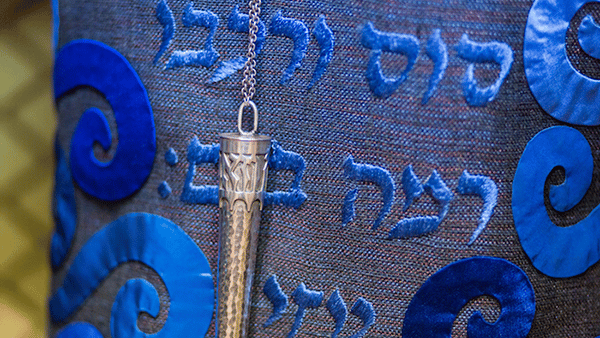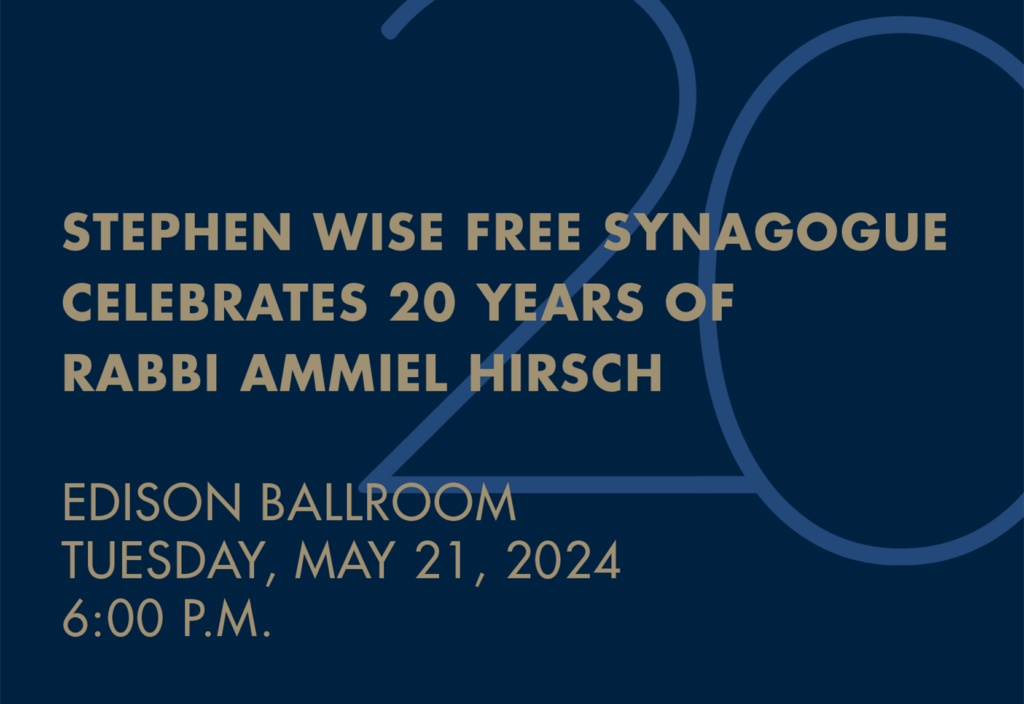
As you may know, synagogues do not endorse political candidates. But we do endorse policies, moralities, and personalities. That is the point of religion: to help bring about a better world. Religion has unique insights into the nature of life, and we are duty-bound to speak these truths to power.
So naturally I’ve been thinking about the election.
Jewish tradition is emphatic that there are no pure leaders. They are all clouded with the dust of human composition and thus, filled with impurities. What makes them great is that they overcome their flaws.
Our tradition considers Moses to have been the greatest leader of all. But the Bible makes no attempt to hide Moses’s failings. He was impatient. He was subject to fits of rage. He does not come across as a warm, cute, and cuddly personality. He was hard to love. When the Israelites inevitably complained, and even rebelled from the hard road to the Promised Land, it wasn’t Moses who comforted them. It was Aaron, the spiritual leader, and Miriam, the prophet, who held their hands and felt their pain.
We are looking for a leader who understands that there is no easy way. Who can protect the free spirit of the people? Who can defend liberty’s barricades, built to repel mass emotion, anger, prejudice, insecurity, fear, and xenophobia? Who can stand in the breach, unwavering against the onslaught of intolerance crashing against freedom’s outer walls? This is the person we want.
We want our leader to acknowledge that freedom is hard. It is not reducible to slogans and simple sayings. Freedom says, “Take the hard road. It goes through Sinai.” For every right you assert, there are responsibilities you must embrace. For every benefit, there is sacrifice. For every liberty, there is duty. But too often we prefer the easy way. We want only benefits, not sacrifice.
As in the Bible, so today, people prefer the easy way. We live in an era of easy answers. Build the wall. Banish the Muslims. Protect my feelings. Give me safe space—and so many other assertions that might look like moral clarity, but are just vapid, self-indulgent vanities.
We seem to have forgotten how hard it was to create and how hard it is to maintain this magnificent country with its exquisite balance of rights and responsibilities. We have forgotten how many before us sacrificed and spilt blood, sweat, and tears to erect and maintain the solid walls of democracy’s fortress.
We have become lazy, complacent, self-absorbed, and narcissistic. If it is openness we want, we cannot build walls. If we want free speech, we cannot have unlimited emotional space. I must be free to say what offends you.
And therefore, more than anything else, we are looking for a leader who is humble. The Bible describes Moses as “the most humble man alive.” What did the Torah mean by humility? Moses seemed imperious at times.
Most of us assume that humility and political leadership are an oxymoron; that they cannot exist in the same politician. Jewish tradition clarifies the relationship between humility and leadership: Humility recognizes the vulnerabilities and frailties of the human condition. Humility accepts that we do not have all the answers; that life is hard; that we are prone to error, and that we labor under arrogant and prideful tendencies.
Humility is the quality that allows for growth and learning. It recognizes our own stupidities. Humility admits there are people who are smarter than we are, more experienced than we are, more capable than we are, and more correct than we are. Humility encourages us to build these people up, not to diminish them in order to show how exalted we are. Humility means not humiliating others.
Humility allows for discernment, inclining us to remain flexible, open, and willing to change our minds. It prevents us from becoming dogmatic, stubborn, and closed-minded. Humility does not contradict drive, ambition, impatience, anger, self-regard, or self-confidence. Moses was filled with these qualities.
In fact, self-regard is critical in a leader because we make so many mistakes in life that success is going from mistake to mistake without loss of confidence. But self-confidence should not be confused with narcissism. If the driving forces are self-promotion and self-interest, then what we have is salesmanship, not leadership.
David Foster Wallace wrote: “There is a difference between a great leader and a great salesman. There are also similarities. A great salesman is usually charismatic and likable and he can often get us to do things that we might not go for on our own… But even a truly great salesman isn’t a leader. This is because a salesman’s ultimate overriding motivation is self-interest.”
What is the difference between a talented salesman and a real leader in American history? According to Wallace, the deepest motives of political salesmen were selfish:
“There was no chance of them ever inspiring us to transcend our own selfishness. Instead, they usually helped reinforce our market-conditioned belief that everybody’s ultimately out for himself, and that life is about selling and profit, and that words and phrases like ‘service’ and ‘justice,’ and ‘community,’ and ‘patriotism,’ and ‘duty’… are just the politics industry’s proven sales pitches….
…We may vote for political salesmen the same way we may buy toothpaste. But we’re not inspired. They’re not the real thing…[It] is the difference between merely believing somebody and believing in
[somebody]
…
All politicians sell, always have. [The greatest leaders] were great salesmen. But that’s not all they were. People could smell it. That weird little extra something. It had to do with character.”
Or as the sages of the Talmud said (Eiruvin 13b): “Whoever runs towards greatness, greatness will flee from him; and whoever flees from greatness, greatness runs after him.”


